Here's a collection of fascinating facts about ancient Greece, the cradle of Western civilization. Some of these Greece facts you may not have known before!
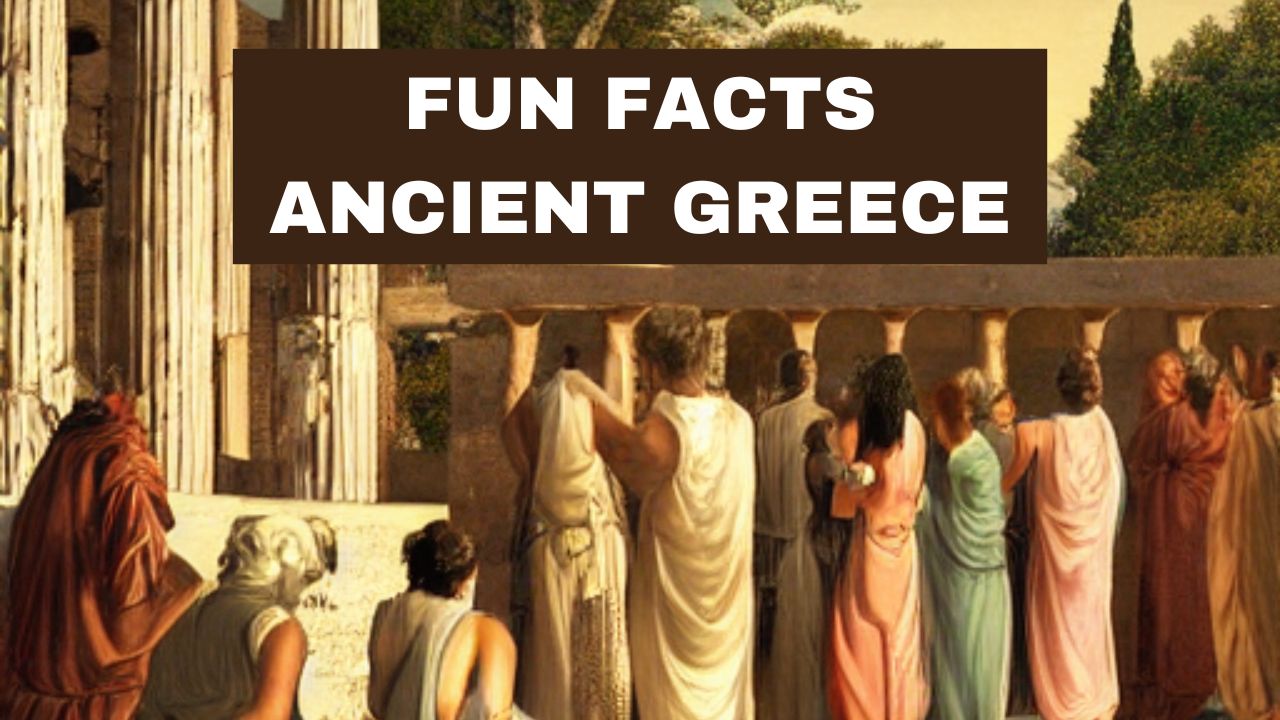
Ancient Greece Fun Facts
Did you know: Greece is home to the oldest capital city in Europe, Athens. Additionally, democracy originated in Greece. Furthermore, women were not allowed to participate in or watch the ancient Olympic Games. The ancient Greeks also invented the theatre.
The ancient Greeks left quite a legacy!
In this quick read about Ancient Greece, you'll discover some wonderfully quirky aspects to the daily life of the Greek people who lived thousands of years ago.
Many of these facts about Greek civilization come to us through the observations of contemporary thinkers and philosophers. Others were discovered later as the full richness of Greece's ancient culture was rediscovered by historians and archaeologists.
In this collection, you'll learn all about Greece in the ancient times, such as Greek culture, Greek mythology, and individual city states like Athens and Sparta.
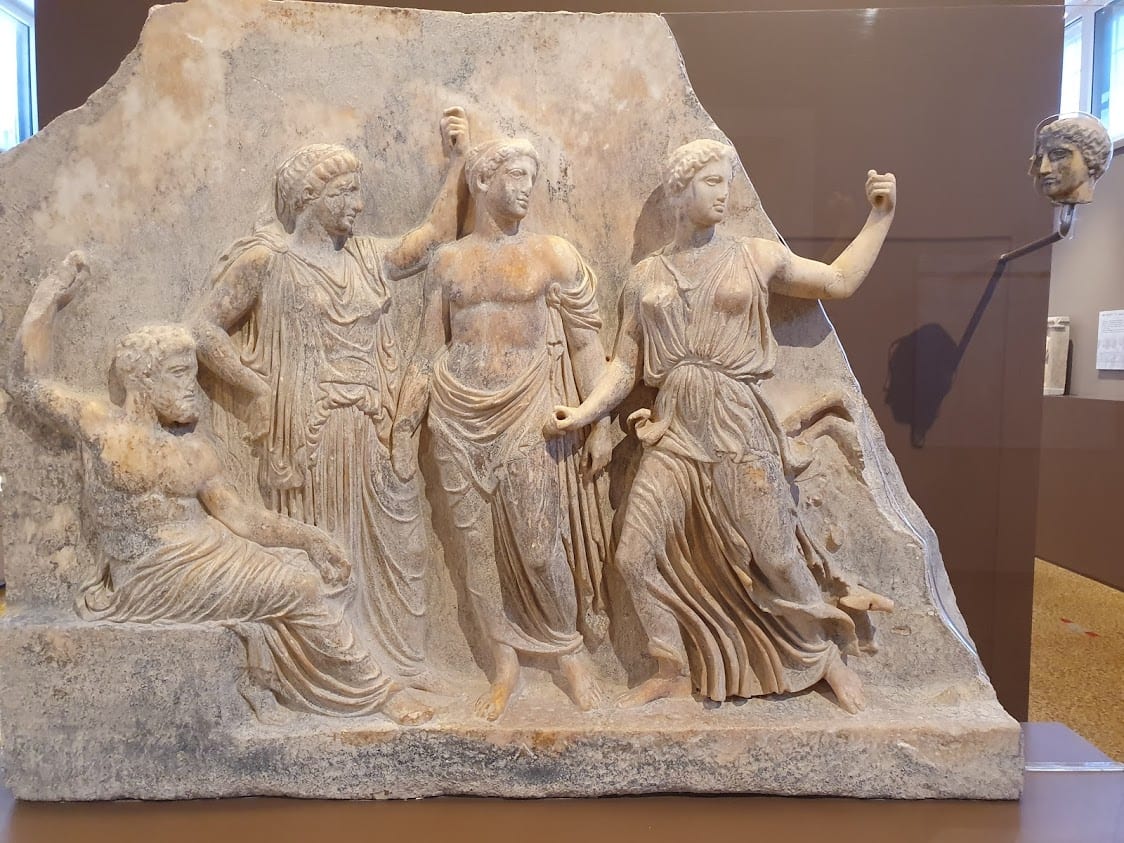
1. There never was an Ancient Greece
Although we use the term to cover the Greek speaking civilization that spanned from the Greek Dark Ages of the 12th century BC to the end of antiquity in AD 600, there was never a physical country called Greece during that time.
Instead, the civilization consisted of city-states such as Athens, Sparta, Corinth and Thebes. These Greek city-states ruled themselves with their own laws, governments and armies.
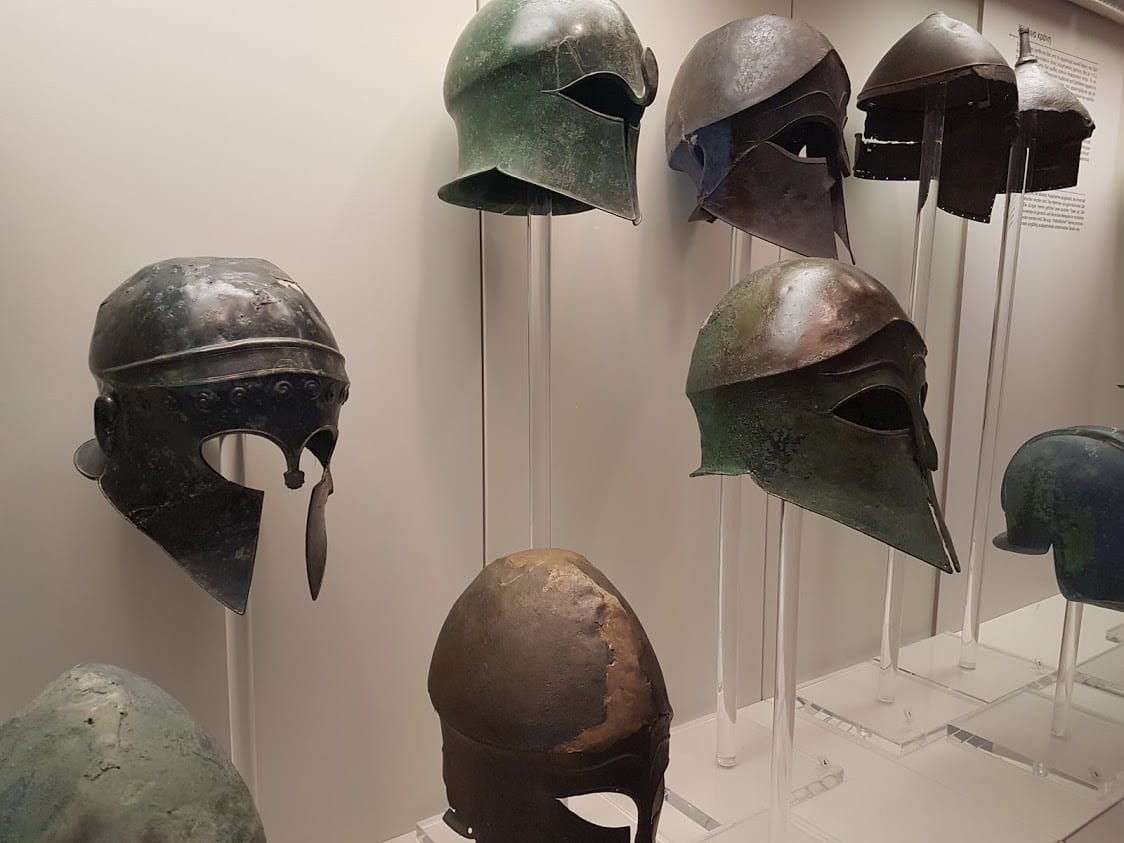
The Greek cities often fought among one another, with the biggest rivals being Athens and Sparta. They also worked together in alliances such as the Delian League when threatened by the much larger Persian Empire.
2. Ancient Greeks lived a long time – sometimes
It is often thought that the average age of people living in antiquity is around 35 years old. However, that average age takes into account childbirth deaths and people who fell in battle.
For those fortunate to survive being born in the first place, and making it past 30, the odds of them living longer were greatly enhanced, especially in the wealthier classes.
This is perhaps due to the healthy Mediterranean diet, a general culture of physical activity, and a good sanitation system.
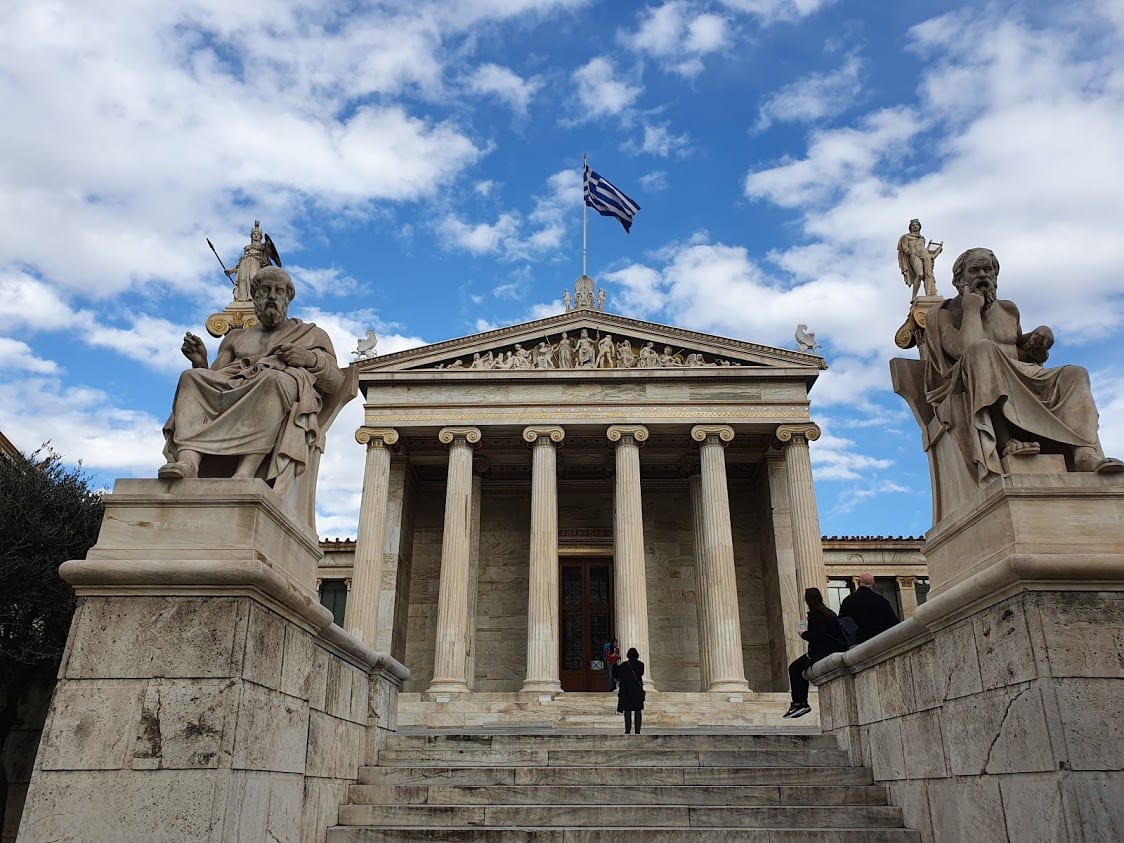
According to the philosopher Seneca, Plato (sitting left in the photos) died at the age of 81 for example. Isocrates, a famous Greek speaker lived even longer and died at the age of 102.
3. Greek Statues were not white
We've become used to seeing the Ancient statues of Greece as elegant but plain marble sculptures. That is only because over time, the colours of them have faded away.
One of the interesting facts about ancient Greece is that the statues of Gods and Heroes that adorned Greek Temples such as the Parthenon in the Acropolis were painted in a bewildering array of colours.

Visitors to the Acropolis Museum in Athens are able to see some small surviving fragments of painted statues on display.
4. Ancient Greek Mathematics is still used today
The Greek mathematicians from the Classical and Hellenistic periods were hugely influential, not just in the ancient world, but also today. The discoveries of Pythagoras, Euclid, and Archimedes, are still taught in schools today.
5. There is a Sacred Triangle in Greece
In keeping with the Euclid mathematical connection, many people believe that some of the temples of Ancient Greece were built in alignment with one another.
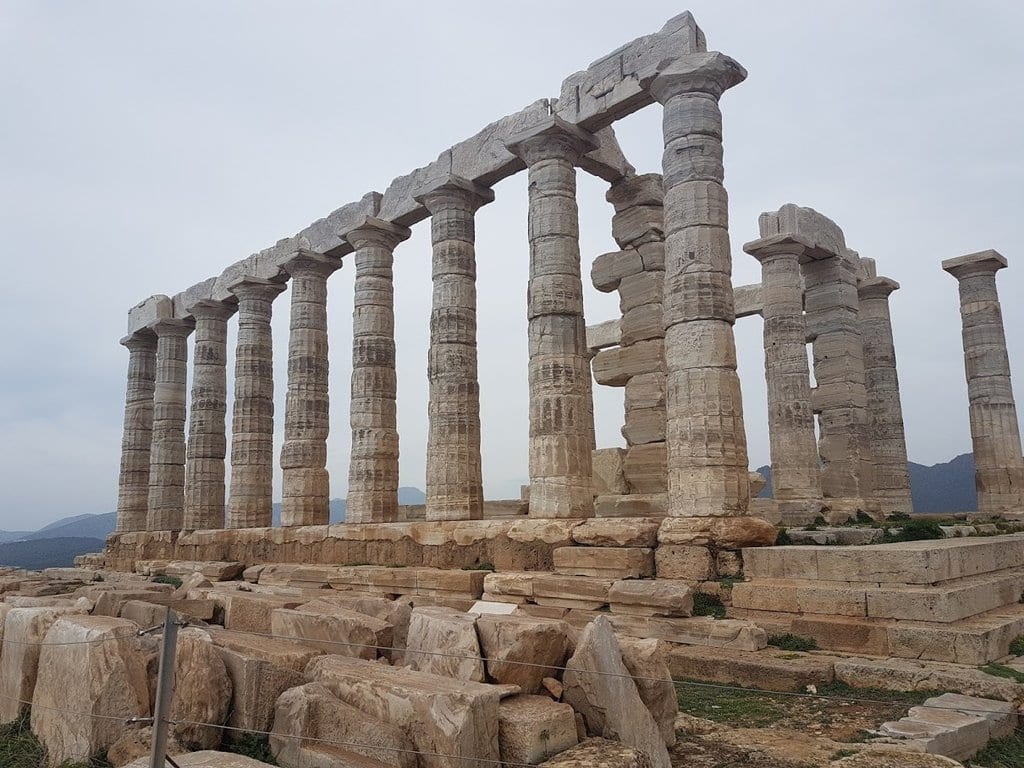
For example, the Parthenon on the Acropolis in Athens, The Temple of Poseidon at Sounion, and the Temple of Aphaia in Aegina are said to form an Isosceles triangle when looked at on a map.
6. Planets orbiting the sun
The ancient Greek Aristarchus of Samos first proposed way back in the 3rd century BC that the planets orbited the sun.
He also postulated that the stars themselves might also be distant suns, and that the universe was much bigger than people could imagine.
His theories didn't gain popular acceptance, and it was only during the Renaissance that he was proved correct.
7. The Yo Yo was invented by the Ancient Greeks
The humble Yo Yo is considered to be one of the oldest toys in history, and one of the random facts about ancient Greece is that it may have been invented there.
Some vases from the Attica region depict a boy playing with a yo-yo, with some examples of yo-yos on display in Athens National Archaeological Museum. They were originally made from wood or terracotta.
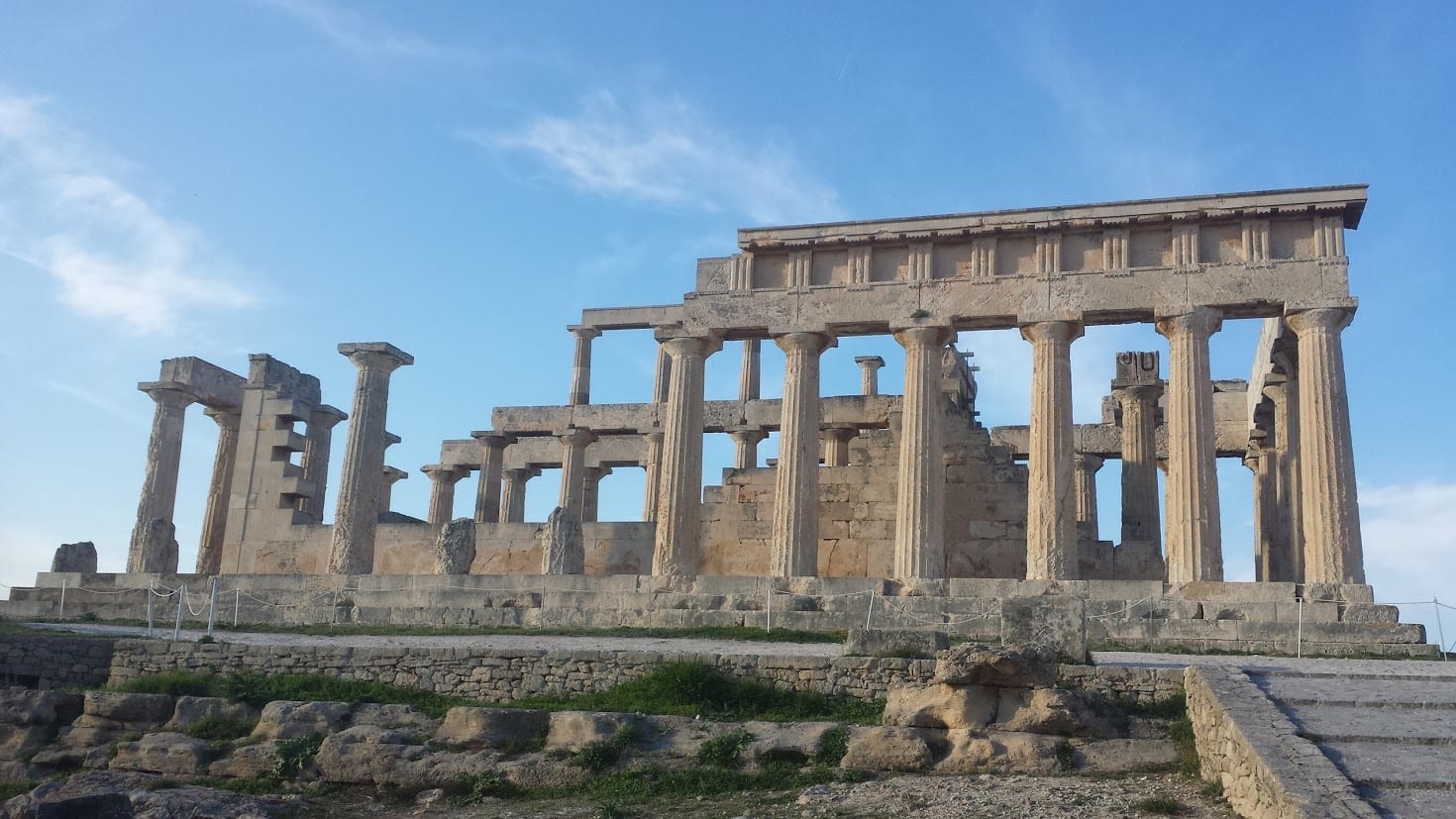
8. First Alphabet with Vowels
The Greek alphabet was developed around 1000 BC. Influenced by the Phoenicians, it was the first alphabet in the world to feature symbols for vowels.
This meant that reading and writing became more accessible to people, and perhaps was one of the factors that contributed to the Ancient Greek civilization being so advanced.
9. Facts about Ancient Greece Olympics
We all know that the Greeks invented the Olympic Games, and the first Games can be traced back to Olympia in 776 BC.
They held very different events than we see today such as chariot racing, as originally they were festivities held in honour of the Olympian Zeus. Here's some more things about the Ancient Olympics that might surprise you.
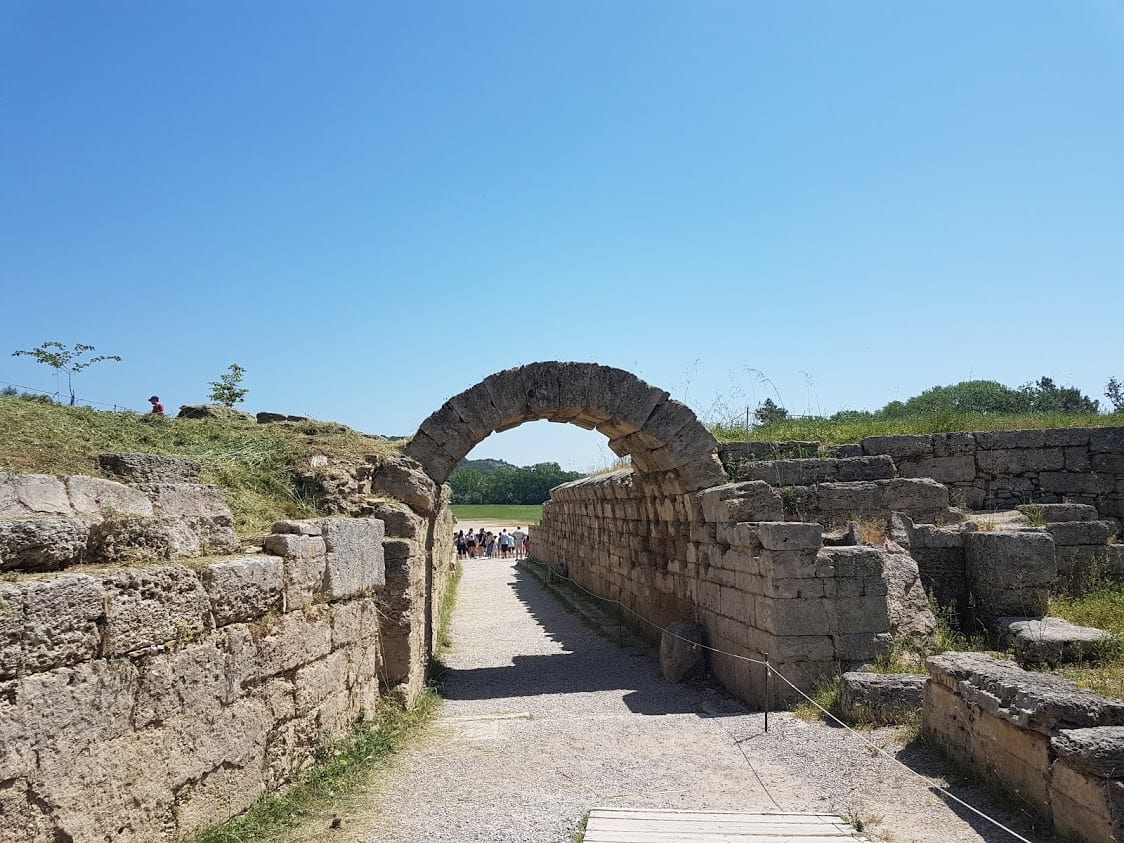
10. Ancient Olympic Athletes competed nude
One of the weird facts about ancient Greece is that athletes competed against one another stark naked!
Nudity was not uncommon in Greece when it came to different aspects of culture and religious celebrations. Athletic nudity was introduced in 720 BC, either by the Spartans or by the Megarian Orsippus, and this was adopted early in the Olympics as well..
11. Athletes traveled during a period of truce
As mentioned, one of the interesting Greece facts was the city-states were often attacking one another. This could have presented problems for athletes traveling to the Games in far away Olympia, so a period of truce or ekecheiria was introduced.
Runners, known as spondophoroi, were sent from Elis (the city patron of Olympia) to the participant cities at each set of games to announce the beginning of the truce.
During this time, armies were forbidden from entering Olympia, and participants and their supporters could move freely to the Games.
12. Facts about Ancient Greece Gods
In Ancient Greek Mythology there were 12 main Gods and Goddesses known as the Olympian Gods. These were said to live on Mount Olympus.

The 12 Greek Gods were: Zeus, Hera, Poseidon, Demeter, Athena, Apollo, Artemis, Ares, Hephaestus, Aphrodite, Hermes, and either Hestia or Dionysus.
Hades is not included as one of the Olympian Gods, as he was thought to dwell in the Underworld.
13. Zeus was a womanizer
One of the fun facts about ancient Greece is that Zeus slept around. A lot. The Greek myths are filled with stories of his infidelity! He sired countless children and demi-gods with gods, nymphs, titans, and mortals.
He often appeared to his partners in a number of disguises such as a shower of gold, eagle, swan, or a bull. His most famous half-human half-god children brought about by his affairs were Hercules and Perseus.
14. Mythological Monsters
Greek mythology was filled with all sorts of weird and wonderful creatures! For example, the Minotaur was a creature with the head of a bull and the body of a man. It was said to live in the labyrinth on the island of Crete, where it would devour human flesh.
Then there is Cerberus, the three headed dog also known as the Hound of Hades who would stop the dead from leaving the underworld. Creepy!
15. The Romans stole some of the Greek Gods
The Roman Empire had a habit of absorbing aspects of cultures they found admirable after conquering them. This led to some of the Greek Gods becoming Roman-ified. One example (of hundred's!) is Hercules (Roman name) who was borrowed from Herakles (Greek name).
16. Facts about Ancient Athens
Athens became the most powerful city state in Greece due to its economic influence and political acumen as much as its strength in arms.
Many of the Ancient Greek philosophers studied or lived in Athens, and it was a breeding place for thought and innovation. These cool facts about Athens might still be strange though!
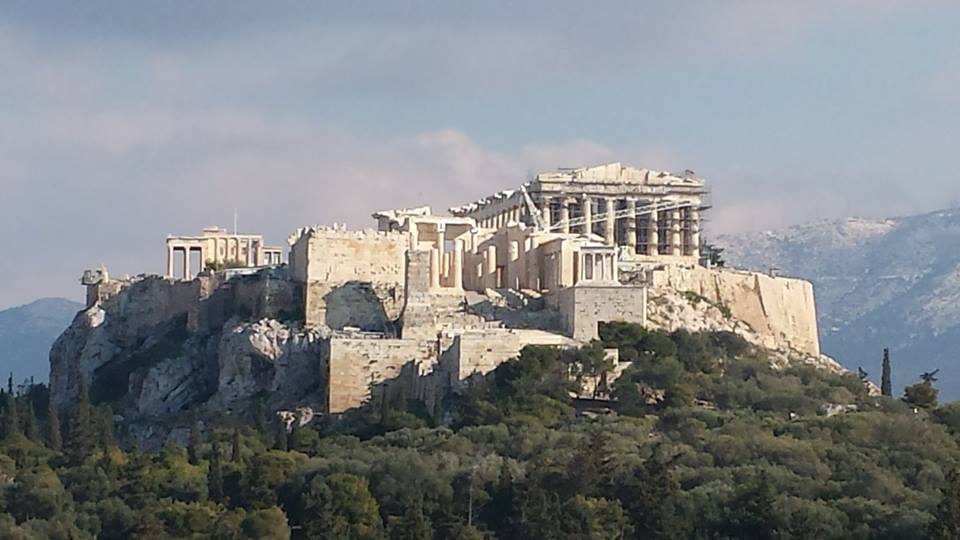
17. Athens was the Birthplace of Democracy
In 507 B.C., the Athenian leader Cleisthenes introduced political reforms called demokratia, or “rule by the people”.
Greek democracy during the Classical Athens period was direct, rather than representative. An adult male citizen (not slave) over the age of 20 could take part, and it was a duty to do so. 26. This democracy lasted for just 185 years.
18. Idiots in Greece
One of the amazing facts about ancient Greece, is that we derive the word “idiot” from that period. At the time it referred to anyone who didn’t participate in politics.
Related: What is Athens famous for?
19. Ostracism in Athens
Another quirk of the Athenian political system, was the practice of Ostracism. Citizens could vote to exile a politician for 10 years, and it was a check and balance against powerful people who plotted to overthrow democracy or who were working against the state.

There is a good display of how Ostracism once worked in the Museum of the Ancient Agora in Athens.
20. Athens was named after the Goddess Athena
According to Greek legend, there was a competition between the Gods over who should become a patron of a new city. Athena and Poseidon went head to head, offering the city gifts.
Poseidon produced a spring of water, but the taste was slightly salty which didn't impress the locals much. Athena then offered an olive tree, in which the citizens saw great value.
Pleased, they named the city after her – Athens. Just think if Poseidon had one, how different Greek history would sound!
21. Acropolis and Parthenon Facts
I've got a full section here dedicated to interesting facts about the Acropolis and Parthenon!
22. Facts about Sparta
Sparta was another powerful city-state in ancient Greece, famed for the strength of its armies. In popular modern culture King Leonidas and the Brave 300 are still household names over two thousand years later!
Sparta had some very strange rules and customs though. Here are a few of them.
23. Infanticide Was Organized by the State
All newborns in Sparta were shown to a council of inspectors. If the inspectors found any physical defects or the child thought unfit to become a Spartan soldier, it was abandoned on a nearby hillside.
Here, the child would either die or might be rescued by the Spartan slaves known as the Helots.
24. Spartan males left home at 7
At the age of 7, Spartan boys were taken from their mothers and placed in a dormitory where they would then spend the next years training and becoming soldiers. Spartan men would not live with their families or wives until the age of 30 when they left active military service.
25. Spartans led a Spartan lifestyle
The Spartans were known for leading lives of self imposed hardship in order to make them tougher in character and in war.
Even their meals sound unappealing, such as melas zomos (μέλας ζωμός mélās zōmós), or black soup / black broth. This was a staple soup made of boiled pigs' legs, blood, salt and vinegar.
26. Spartans kept things brief
If their lifestyle was sparse, the way they used words was even sparser. They were famous for their short replies when questions were asked.
Alexander the Great’s father, after conquering much of southern Greece, sent a message to Sparta, which read, “You are advised to submit without further delay, for if I bring my army into your land, I will destroy your farms, slay your people, and raze your city.”
The Spartans, with a characteristic reply simply sent a message back with one word ‘If'. The reply worked – Philip did not attack Sparta!
27. Sparta was a city with no walls
One of the amazing facts about Sparta, was that the city had no walls after 800 BC. When asked why, Agesilaus the Spartan King pointed to his heavily armed soldiers who were by far the most efficient war machine in Greece and said ‘Here are the walls of the Spartans.’ ”
28. The Battle of Thermopylae
Legend tells us that King Leonidas and the Brave 300 held off an advancing Persian army that numbered in the hundred's of thousands.
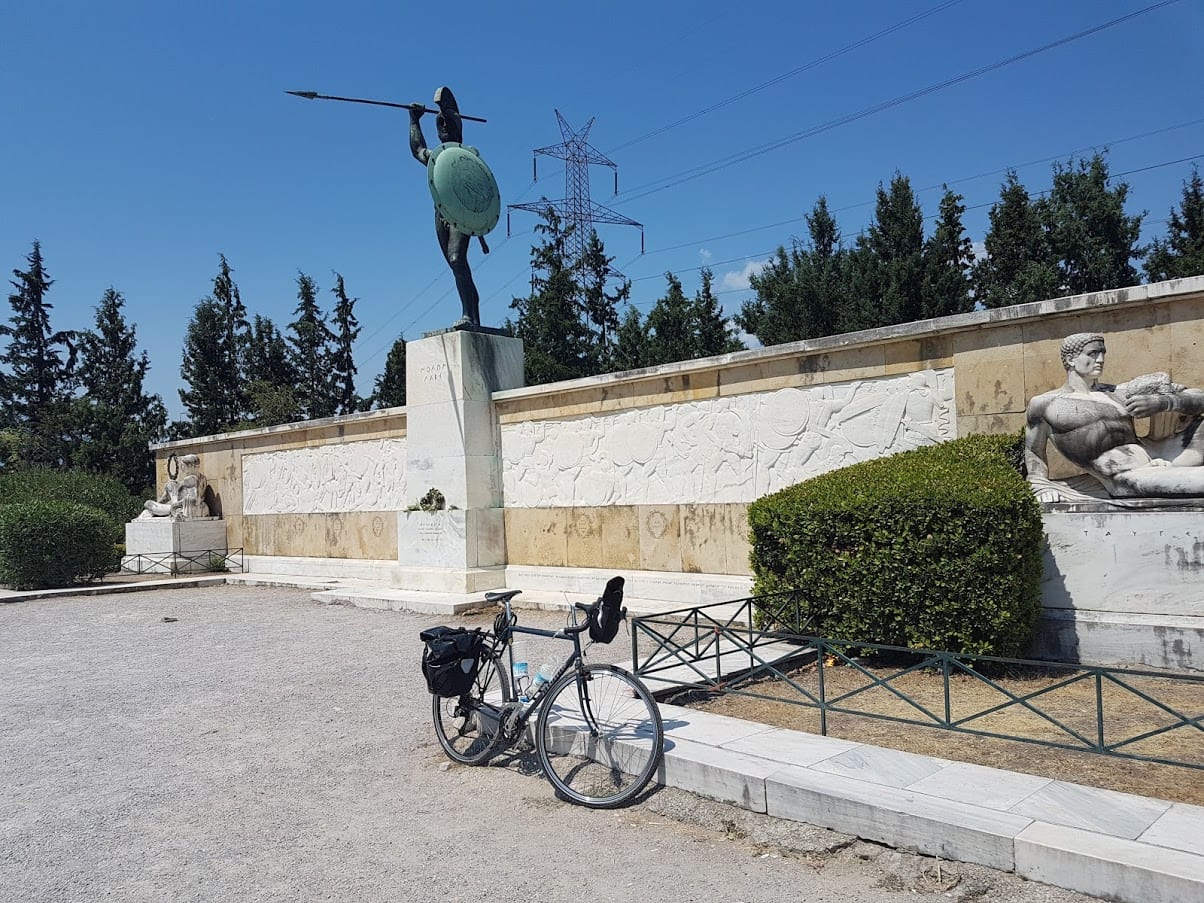
Whilst it is true that there were 300 Spartans, there were also another 7000 assorted Greek soldiers from city states such as Thebes.
Ancient Greece Facts and Information FAQ
Here are some commonly asked questions to do with facts about the ancient Greeks.
What was Ancient Greece famous for?
The Ancient Greek civilization made enormous contributions to arts and sciences in the fields of literature, philosophy, mathematics, astronomy, theatre, and medicine. Their influence is still felt today in Western societies thousands of years later.
Did the Greeks invent democracy?
It is commonly believed that Greek Athenians developed democracy around the 5th century BC. However, the historian Diodorus writes that the Medes had a form of elected regional government after overthrowing the Assyrians in what we today call Classical Iran. This would have placed it at around 100 years earlier.
Who were some famous Ancient Greek philosophers
Classical Greece produced some of the finest thinkers of the world. Some of the most notable Greek philosophers include Socrates, Plato, and Aristotle.
What is the style of Greek architecture?
Archaic and Classical Period Greek architecture appears in Doric, Corinthian and Ionic styles.
Pin these Facts about Ancient Greece
If you found these Ancient Greek facts an interesting read, and you use Pinterest, please pin for later. That way other people can also easily find and enjoy these fun facts on Ancient Greece.
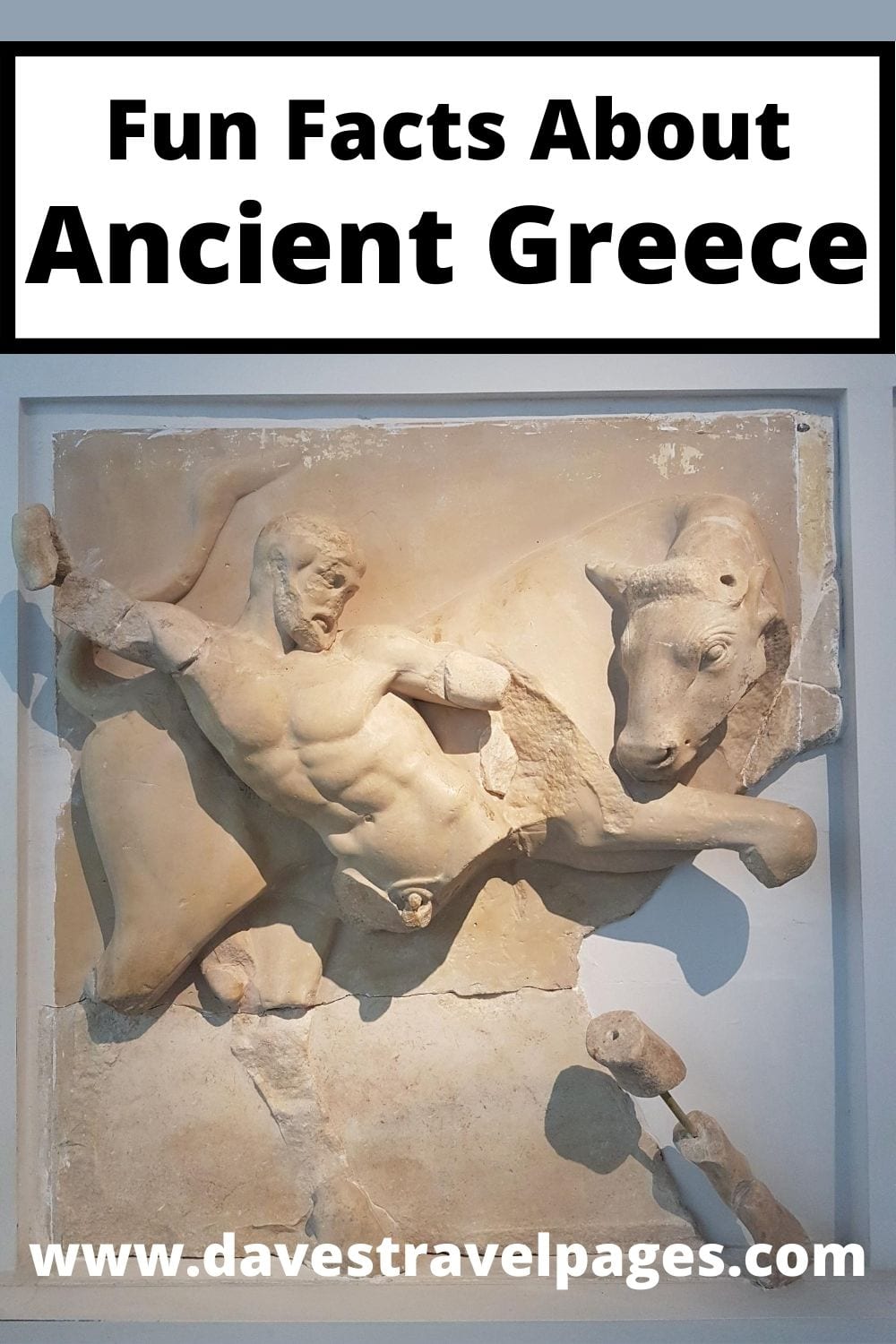
If you know other interesting things about ancient Greece we've not included here, please leave a comment below as we'd love to read about them!
You might also be interested in the other posts:
- Fun Facts About Greece
- Interesting Facts About Athens
- Interesting facts about Santorini
- Quotes about Greece
- 50 Best Philosophy Quotes
 – Dave Briggs
– Dave BriggsDave is a travel writer who has been living in Greece since 2015. In addition to this blog post about interesting facts about ancient Greece, you will find hundreds of other insights, guides, and itineraries for Greece on this site.
Follow Dave on social media for travel inspiration from Greece and beyond: